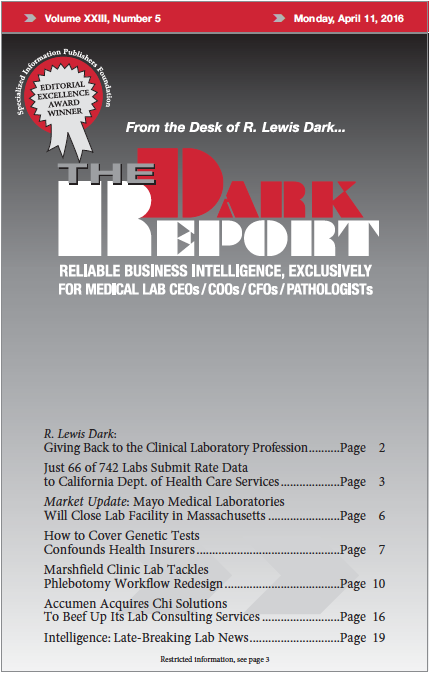CEO SUMMARY: Managed care experts say health insurers are being overwhelmed by the number of new genetic tests and that many labs find it tough to get paid for these tests. UnitedHealthcare just announced it will require pre-authorization of molecular and genetic tests during 2016. Meanwhile, Cigna, which already has pre-authorization in place for certain genetic tests, said it intends to […]
To access this post, you must purchase The Dark Report.


